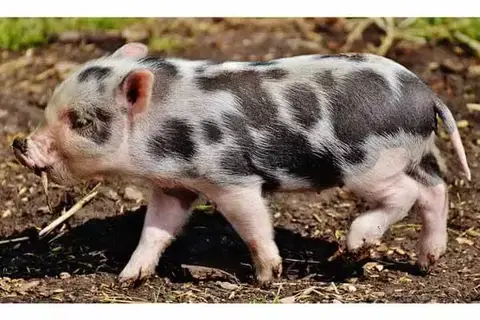How Often Should Guinea Pigs Eat?
Nolan FosterA correctly formulated diet is the basis of guinea pig health.
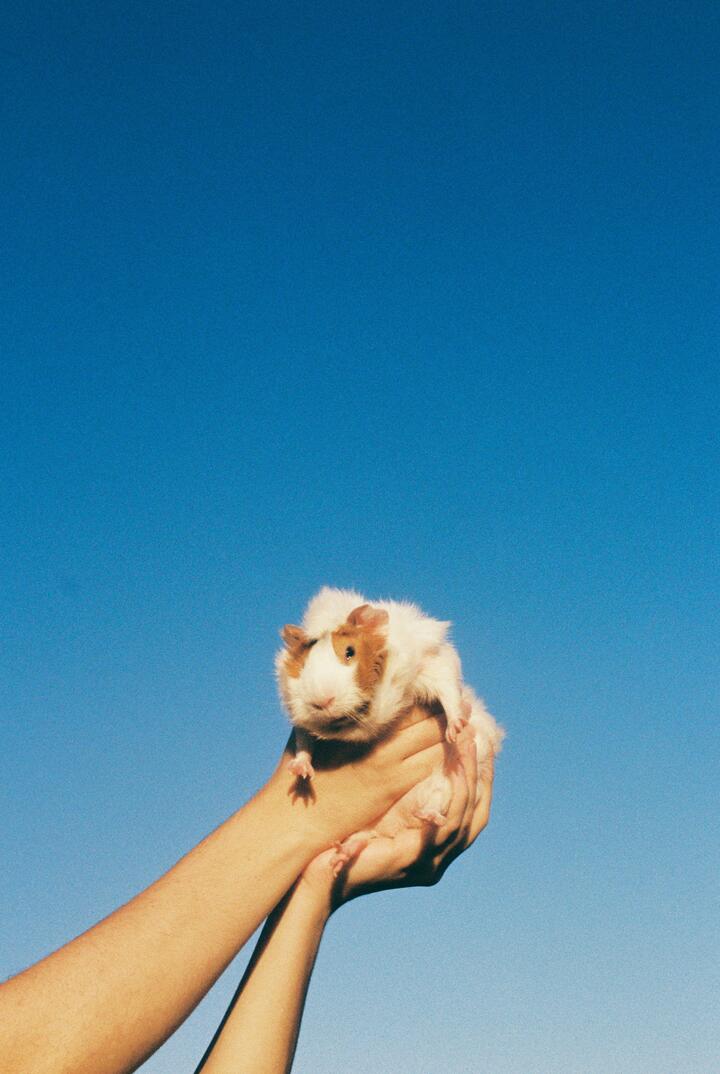 Photo by Leslie Soto on Unsplash
Photo by Leslie Soto on UnsplashWhat to feed guinea pig? How many times a day and in what proportions to feed guinea pigs?
The diet consists of hay, cereal mixes, juicy and green feed. The food should contain at least 15% coarse fibers and 20% raw proteins.
The guinea pig cage should always contain hay (you can add fresh grass in summer). It has a beneficial effect on the digestion process of the animal and promotes the grinding of teeth, which in guinea pigs, like all other rodents, grow throughout life. The hay should be dry, a little greenish, and have a pleasant smell. It must not be raw, musty, or have an overstuffed smell.
The diet should include dry food, it is desirable to buy special dry food for guinea pigs in the pet store. It can be prepared independently from a mixture of oats, wheat, barley, corn, millet, sunflower seeds.
Grain mixture should be given 2-3 times a day (for adult pigs) and 3-4 times a day (for pregnant females and skinny woolless guinea pigs). It is desirable to feed guinea pigs every day at the same time. Disorderly feeding can lead to the development of diseases of digestive and other systems. On a day guinea pig should receive 4-6 tbsp. of dry food (1-2 tbsp. for one feeding). If the guinea pig did not eat dried food immediately, do not need to remove it from the cell, let it stay in the feeder.
Feed the guinea pig exclusively cereal mix, as this can lead to obesity. Also, dry food does not contain enough vitamins and minerals, so such feeding can lead to reduced immunity and the development of various diseases.
In the morning, the piggy is given juicy fodder – fresh fruits and vegetables, plants. Pregnant and lactating pigs (as well as skinny pigs), they are given twice a day – morning and evening. All fruits and vegetables must be washed thoroughly before they are given to the animal. Plants should be collected away from roads, factories, places for walking dogs, etc.
From vegetables, guinea pigs can be given cucumbers, carrots, tomatoes, white cabbage, broccoli, Chinese cabbage, kohlrabi cabbage, pumpkin, cabbage salad, sweet pepper (red, yellow, green), trout, beet, sweet corn (not canned), zucchini, peas. All kinds of cabbage and peas give rarely and a little, as in large quantities they can cause bloating. You should not feed guinea pig onions, beans, and potatoes.
From fruits and berries are allowed apples, pears, bananas, strawberries, kiwi, mandarins, grapes without peel and seeds, oranges, dried rosehip fruit, melon, watermelon.
From herbs and greens can be given dill, parsley, spinach, celery, alfalfa, dandelion, clover, yarrow, plantain, dried nettles.
Some plants are poisonous for guinea pigs. They include plants of such families as Araliaeae (Khedira, polyscias, fatssia, shuffler), aroids (aglaonema, alocasia, anthurium, arizema, diffenbahia, calla, zamiokulkas, monster, spatifillum, etc.). ), amaryllis (amaryllis, hippeastrum, echaris, etc.), kutra (oleander, diploma, adenium, etc.), nightshade, dairy (milk, punchettium, aloe, cyclamen, ficus, etc.). If the guinea pig accidentally ate a poisonous plant, take it to the veterinarian as soon as possible, taking a leaf of the plant with which your pet was poisoned.
To grind teeth, give branches of trees (willows, alder, birch, pear, apple), as well as special crispy hard sticks or dried crust of white bread. You can not give mumps twigs of cherries, plums, yew, lilacs, and conifers.
The cage of guinea pigs should always be freshwater. It is best to pour filtered water, which should be changed daily.
All guinea pigs need vitamin C, as their bodies are unable to synthesize it on their own. Adult guinea pigs need about 10-20 mg of vitamin per 1 kg of weight, pregnant females – twice as much. Part of the vitamin C they get with vegetables, fruits, and green food, as well as with some industrial feed. As an approximate dose can be recommended 1 mg of ascorbic acid per 1 ml of water. As ascorbic acid easily enters into chemical reactions, the solution must be changed daily. Dosage of vitamin C for a drink of 250 ml: 5 – 25 mg. depending on the season. In winter, vitamin C is given more than in summer. Ascorbic acid easily enters into chemical reactions, so the solution must be changed daily. If a guinea pig gets vitamins in a complex that already contains vitamin C, it is not necessary to give it additionally.
If the guinea pig has a lack of vitamin C (it manifests itself in lethargy, loss of appetite and weight, loss of hair), vitamin C should be grinded into powder and added to water. It is also desirable to add vitamin C to the drinker in winter.
Harmful for guinea pigs are:
•cheese, sausage, meat, eggs, and other animal products (except curd and milk, which is given during lactation);
•red cabbage;
•immature and overripe fruits and berries;
•remnants of other food from the human table;
•sweets;
•moldy, rotten, and polluted forages;
•dampened food.
Can Guinea Pigs Eat Sunflower Seeds?
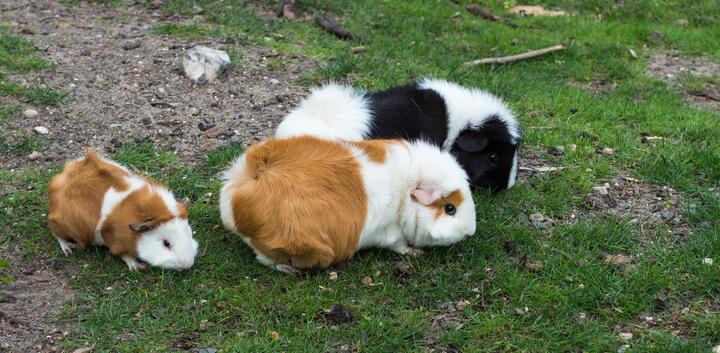 Photo by Anton Nikolov on Unsplash
Photo by Anton Nikolov on UnsplashSunflower seeds are a source of fat, carbohydrates, and vitamin E. They are often fed to guinea pigs as a snack, but they should not be fed in large quantities. However, you can include them in their diet. They are an excellent source of nutrients and are safe to give to your pet. To learn more about what types of foods your guinea pig should avoid, read this article.
Sunflower seeds are a choking hazard for guinea pigs. They are too large for them to chew and can cause a choking hazard. As such, they should be avoided. As with any seed, they must not be exposed to sunlight, as the light from the sun can be toxic to your pet. To avoid this problem, use sunflower seed treats as a treat.
Sunflower seeds can be beneficial for your pet, including healthy fats. But they are also dangerous to your pet. The seed shells can be a choking hazard for a cavy. Because sunflower seeds are hard, they will likely leave the shells alone, which is another reason they are not advisable to feed your guinea pigs. But, they are safe for humans!
Sunflower seeds are not safe for guinea pigs to eat. They are a choking hazard. They may choke on them, so they should be given in moderation. These fruits and vegetables also provide plenty of vitamin C and are safe for your pet to consume. To keep your guinea pig from becoming sick, give them only small amounts of these foods. You can also provide them with vegetables.
Apart from sunflower seeds, guinea pigs should also be fed with a variety of fresh leafy greens. Dark leafy lettuces such as dandelion greens and rockets are suitable for guinea pigs. They are also good sources of fiber and water. Nevertheless, you should be aware of the fact that they are acidic and contain sugar.
Although sunflower seeds are not harmful to guinea pigs, they are a choking hazard. Some seeds can be harmful to guinea pigs. These crunchy, greasy, and chewy seeds should never be given to a pet. The University of Illinois College of Veterinary Medicine warns against giving pets seeds. It recommends only giving your guinea pigs soft treats with seeds and no other bits.
Sunflower seeds are an excellent source of protein, fiber, and magnesium. You can feed guinea pigs sunflower seeds daily. It is important to avoid giving them large amounts of sunflower seeds as they may choke on them. In addition to limiting the amount of sunflower seed, guinea pigs should not be given sunflower seeds. They should only eat the small, unsweetened varieties.
Sunflower seeds contain many nutrients, including vitamin E. In addition, they are high in magnesium and are good for the immune system. In addition, sunflower seeds contain flavonoids, which protect the body from free radicals. They also help reduce inflammation in the body. You should not feed them too much fruit that is high in sugar or contains a large number of fatty acids. If you feed them too much sunflower seed, your guinea pig could choke.
Although sunflower seeds can be a healthy treat for your guinea pig, they should not be fed to a cavy. This is because they contain too much fat and pose a choking hazard. Besides, these seeds can break into small pieces, which is a huge choking hazard. If you do give them sunflower seeds to your guinea pigs, be sure to remove the shells.
Sunflower seeds are a rich source of vitamin E and selenium. They are a good source of zinc and calcium. But if you are not sure whether sunflower seeds are safe for your guinea pig, you should consult a veterinarian to ensure your pig’s safety. A guinea pig’s health is important, and these seeds should never be fed to your guinea pig.
- Wildlife20 Interesting Facts About Snakes
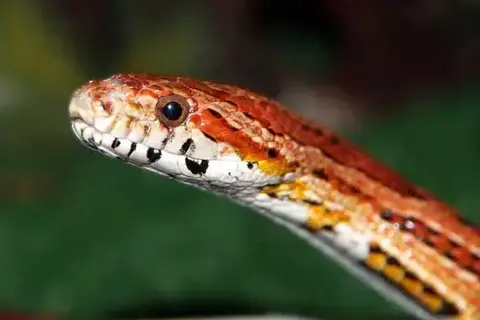
- DogsDoggie Relaxing MassageBy Evelyn Star

- CatsWhy Cat Food Is Bad For DogsBy Evelyn Star
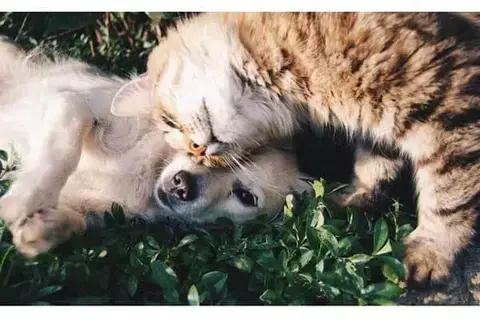
- DogsWhat Cat Food Is Best For Kittens?By Evelyn Star
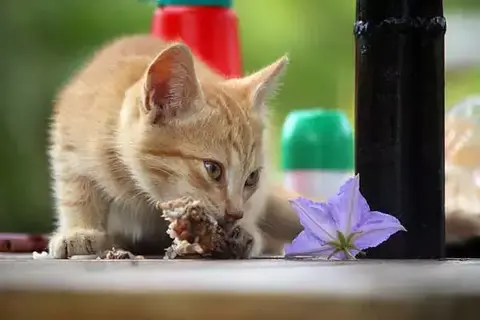
- CatsThe Cat Rescued A Kitten Stuck At A HeightBy Amelia B
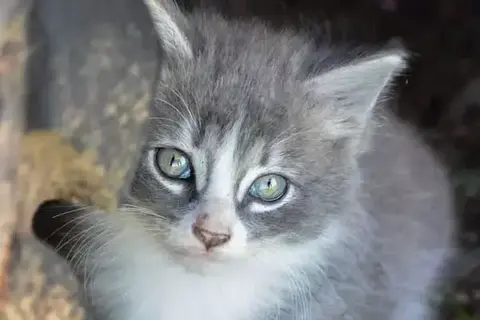
- BirdsInteresting Facts About Great Blue HeronBy Nolan Foster

- Wildlife27 Interesting Facts About GorillasBy Khai Dove
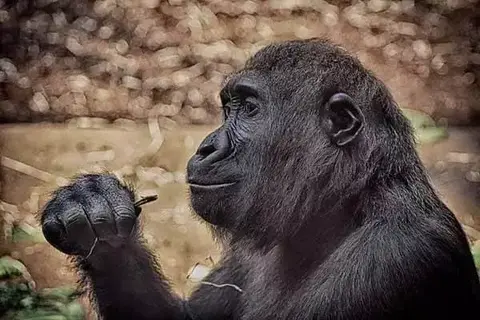
- DogsWhat Is Chinchilla Life Expectancy?By Khai Dove
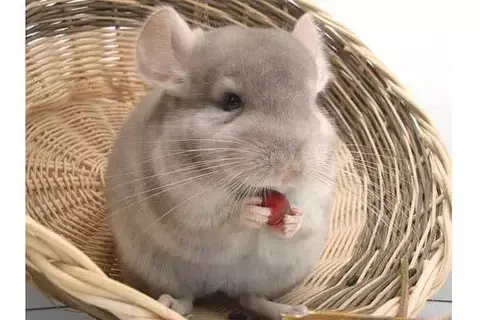
- WildlifeWhat Do Doves Eat In The Wild And At Home?By Khai Dove
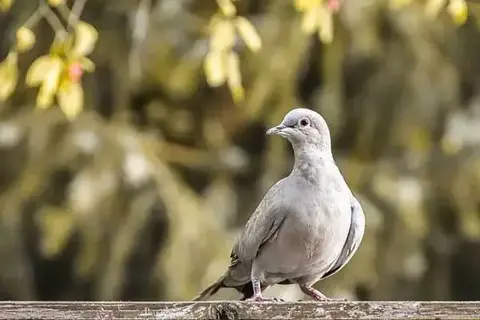
- LivestockPiglets Need A Hugging SpecialistBy Khai Dove
